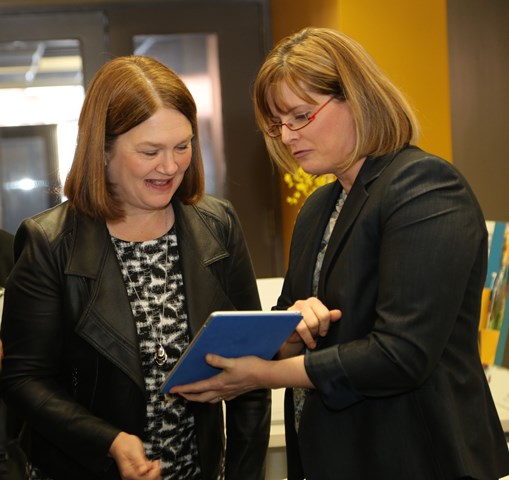
By David Stoller
It is an undeniable reality that as the global population ages, all countries must improve their involvement and oversight in helping manage and care for older adults. To put this into context, the World Health Organization’s (WHO) “World Report on Ageing and Health” predicts that the number of people over the age of 60 will double to 2 billion by 2050.
Tied to the aging population is the rise in the number of seniors with dementia. The WHO notes there are approximately 47.5 million people worldwide who have currently have dementia, and that 7.7 million new cases are diagnosed every year. The increase in the number of older adults, and specifically those who suffer from dementia, calls for organizations and professionals within the healthcare community to work together to provide better long-term outcomes for these patients and their families.
Enter the Canadian Centre for Aging and Brain Health Innovation (CC-ABHI), a solution accelerator focused on driving innovation in the aging and brain health sector. Established in 2015 with $124 million in funding from the Government of Canada, the Government of Ontario, the Baycrest Foundation, and other health system partners, CC-ABHI represents the largest investment in brain health and aging in Canadian history, and one of the largest investments of its kind in the world. To accelerate the pace of innovation, CC-ABHI collaborates with researchers, clinicians, point-of-care workers, and industry partners to develop, test, and disseminate solutions that improve brain health and quality of life for older adults.
In the fall of 2016, CC-ABHI launched several funding programs that have the potential to directly improve the future well-being of our aging population. One such program was SPARK, which offers up to $50,000 per project to support small-scale, grass-roots proof-of-concept activities for innovations developed by point-of-care staff. Launched in September 2016, the SPARK call attracted 124 expressions of interest, of which 31 were then been selected by independent reviewers to receive funding. In total, $1.4 million in total allocations will be distributed amongst the 31 recipients.
One of this year’s SPARK recipients is Kensington Health, located in Toronto. Working with UHN’s OpenLab and the Toronto Rehabilitation Institute, they are testing the potential benefits of virtual reality (VR) on seniors with dementia who are otherwise restricted to their homes or long-term care residences. The aim of their project is to assess the use of VR to improve patients’ mental health and quality of life, and to reduce their propensity to wander.
Vepeson Wijeyakulasingam, another SPARK recipient, is working with his team at the Assistive Technology Clinic to design a product that will reduce falls in older adults with mobility issues or cognitive impairments. “The Laser Walk” is a laser module that can be mounted to a senior’s existing mobility aid in order to project a line that facilitates safe and independent mobility. With SPARK support, this project will refine and test an existing prototype on a wide variety of assistive devices (i.e. walkers and canes) to ensure that it is durable and can be easily transferred to different clients’ mobility devices.
While the application window for the 2016 SPARK program funding has since closed, other funding programs are open to the public. For instance, on February 16th, 2017CC-ABHI launched the Researcher-Clinician Partnership Program (RCP2), which provides up to $600,000 per project to teams of clinicians and researchers with an innovative aging and brain health product or service that is at an advanced stage of development. By participating in RCP2, teams will be able to test and validate their technology so as to obtain the evidence needed to successfully market their product in the seniors’ care and brain health marketplace. Through this initiative, CC-ABHI will support up to eight new projects, with a total funding allocation of $2.4 million. The deadline for submitting Expressions of Interest is March 30, 2017.
The need for innovation is critical! Patients, families, and members of the healthcare community are facing ever-mounting challenges from an aging population. Of particular note is the struggle people face in caring for someone with an illness that affects their cognitive abilities. However, thanks to funding programs made available through organizations such as CC-ABHI, the future of innovation in Canada is bright, and the prospects for our aging population continue to improve.
For more information on how you can participate in CC-ABHI innovation programs visit www.ccabhi.com or email info@ccabhi.com
David Stoller is a Sr. Marketing Specialist at The Canadian Centre for Aging and Brain Health Innovation.

